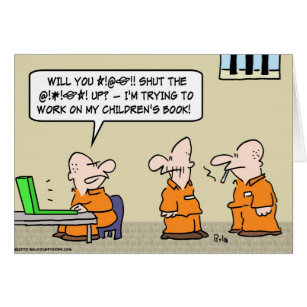Paul Whybrow
Full Member
I recently read Philip Pullman's La Belle Sauvage, the first part of a trilogy called The Book Of Dust.
Overall, I enjoyed it but was a little shocked at the number of swearwords—not because they didn't fit the boy speaker's way of expressing himself—more because of the likely age of most readers of the story.
I'm not so naïve that I think children don't know how to swear, but there is a danger that normalising bad language in fiction will lead to overuse in day-to-day speech. Swearing isn't always a bad thing, as this article points out:
Philip Pullman's swearwords are a useful lesson for children
I've only ever written poetry for young readers, none of which had anything ruder than the word 'bum' in it. With my crime novels for adult readers, I'm well aware that there should be a lot more swearing in the dialogue, were I going for verisimilitude, as coppers and criminals aren't known for being genteel. Instead, I have my characters use swearing in times of stress.
Various famous children's books have included swearing, such as David Almond's Skellig, which caused his publishers to have a heated debate over his use of the word "bollocks"—they left them in!
It could be argued that the use of swear words is age-sensitive when young readers are leaving childhood to become juveniles.
Censorship of anything is contentious, but should young readers' books carry warning stickers if they contain swearing? Sometimes swearing is a key element in the story. In 2014, Brian Conaghan published When Mr. Dog Bites, which tells the story of a teenager with Tourette's Syndrome, a condition the author knows well, as he suffers with it. Every swearword appears in the text, but in a realistic way and not done to be sensational:
When Mr. Dog Bites
If you write for children, how do you deal with swearing?
Do you make up swear words if you write Fantasy or Science Fiction?

Overall, I enjoyed it but was a little shocked at the number of swearwords—not because they didn't fit the boy speaker's way of expressing himself—more because of the likely age of most readers of the story.
I'm not so naïve that I think children don't know how to swear, but there is a danger that normalising bad language in fiction will lead to overuse in day-to-day speech. Swearing isn't always a bad thing, as this article points out:
Philip Pullman's swearwords are a useful lesson for children
I've only ever written poetry for young readers, none of which had anything ruder than the word 'bum' in it. With my crime novels for adult readers, I'm well aware that there should be a lot more swearing in the dialogue, were I going for verisimilitude, as coppers and criminals aren't known for being genteel. Instead, I have my characters use swearing in times of stress.
Various famous children's books have included swearing, such as David Almond's Skellig, which caused his publishers to have a heated debate over his use of the word "bollocks"—they left them in!
It could be argued that the use of swear words is age-sensitive when young readers are leaving childhood to become juveniles.
Censorship of anything is contentious, but should young readers' books carry warning stickers if they contain swearing? Sometimes swearing is a key element in the story. In 2014, Brian Conaghan published When Mr. Dog Bites, which tells the story of a teenager with Tourette's Syndrome, a condition the author knows well, as he suffers with it. Every swearword appears in the text, but in a realistic way and not done to be sensational:
When Mr. Dog Bites
If you write for children, how do you deal with swearing?
Do you make up swear words if you write Fantasy or Science Fiction?

